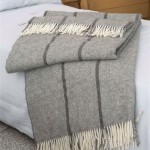Does a Mattress Protector Prevent Bed Bugs?
Bed bugs are a common pest that can infest homes and cause significant discomfort and inconvenience. These tiny insects feed on human blood, leaving behind itchy bites and potential allergic reactions. As a result, many individuals seek ways to protect themselves from these pests, including the use of mattress protectors. While mattress protectors offer several benefits, their effectiveness in preventing bed bug infestations is a subject of ongoing debate.
Mattress protectors serve a variety of purposes, including protecting the mattress from spills, stains, and dust mites. They can also help extend the lifespan of the mattress by preventing wear and tear. However, the effectiveness of mattress protectors in preventing bed bug infestations is not as clear-cut.
The Role of a Mattress Protector in Bed Bug Prevention
Mattress protectors can play a role in bed bug prevention by creating a physical barrier between the mattress and the pests. Some protectors are designed with tightly woven fabrics that make it difficult for bed bugs to penetrate. The barrier may also prevent bed bugs from accessing the mattress's seams and crevices, where they often hide and lay eggs.
Limitations of Mattress Protectors
While mattress protectors can offer some protection against bed bugs, they have their limitations. The effectiveness of a mattress protector depends on several factors, including:
- Type of Material: Some materials are more effective than others at preventing bed bugs from penetrating. For example, a tightly woven fabric like cotton or polyester is more resistant to bed bugs than a loosely woven fabric like linen.
- Thickness: Thicker mattress protectors can provide a more substantial barrier against bed bugs. However, thicker protectors may not be as comfortable or breathable as thinner ones.
- Condition of the Mattress: If the mattress is already infested with bed bugs, a mattress protector alone may not be enough to eliminate the infestation. Bed bugs can often find ways to access the mattress through existing tears or holes in the fabric.
Additional Considerations
In addition to the limitations of mattress protectors, it's crucial to consider the following factors when assessing their effectiveness:
- Bed Bug Infestation Level: If the infestation is already severe, a mattress protector may not be sufficient to prevent bed bugs from accessing the mattress. Professional pest control services may be necessary.
- Other Prevention Methods: Mattress protectors should be used in conjunction with other bed bug prevention methods, such as regular cleaning, vacuuming, and inspecting furniture and bedding for signs of infestation.
- Frequency of Use: Mattress protectors should be washed regularly to maintain their effectiveness and prevent bed bugs from becoming established within the fabric.
Conclusion
While mattress protectors can offer some protection against bed bugs, they are not a foolproof solution. It is essential to consider the limitations of mattress protectors and to employ other bed bug prevention methods to create a comprehensive approach to pest control. Regular inspection, proactive measures, and professional pest control services are essential for preventing bed bugs and maintaining a pest-free environment.

The Best Mattress Covers For Bed Bug Protection

Do Mattress Protectors Prevent Bed Bugs Yes No Here S Why Ecoy

Can You Still Get Bed Bugs With A Mattress Cover

Bed Bugs Do Mattress Encasements Help Pest Management Professional

9 Of The Best Bedbug Mattress Covers

Do Bed Bug Covers Work Integrity Solutions

Can A Mattress Cover Prevent Bed Bugs

Are Dust Mite Proof Covers Bed Bug

Mattress Encasements For Bed Bugs

Protect A Bed Bug Proof Mattress Protector 150cm X 200cm







